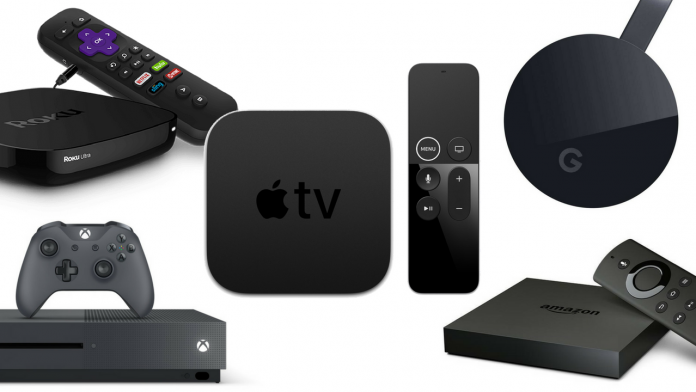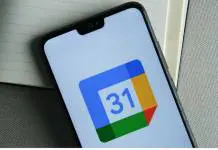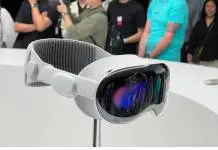
Apple introduced the Apple TV 4K to the world on Tuesday, along with other much-awaited gadgets like the next generation iPhone, Apple Watch, and more. The streaming box is arriving late to the 4K party, but some argue that it compensates the long waiting time with features worth getting.
Other established streaming devices in the market have offered 4K streaming and content for over a year, including Google’s Chromecast Ultra, the Roku Ultra, and Microsoft’s Xbox One S, which technically qualifies. Amazon’s upcoming Fire TV players are also both rumored to support 4K UHD.
Many consumers left with standard HD devices are considering making the jump to 4K but now face several choices. Here is a brief breakdown of how all of these devices compare so you can make an informed decision when upgrading your home entertainment system.
Controls and navigation
Most next-gen streaming boxes support some sort of smart navigation system. Tech giants have taken advantage of two main approaches: voice controls and virtual assistants. The latter is actually 2-in-1, most of the time, but only a couple of the devices on the list feature them.
The Apple TV 4K has Siri, while the Chromecast Ultra packs Google Assistant. The Xbox One S has Cortana support, and the upcoming generation of Amazon Fire TVs both have Alexa smarts to sort through content. The Roku Ultra, meanwhile, has voice control tied to no particular assistant.
Amazon’s Fire TV, Roku’s Ultra and Apple’s TV 4K let you control what you watch using their respective remotes, while the Chromecast Ultra works with any compatible Android device. Similarly, all you need with an Xbox One is a microphone.
So no USB-C port on the Apple TV 4K means nobody will be able to capture video from it without a HDMI capture card? …but why?
— Steve T-S (@stroughtonsmith) September 14, 2017
Specs and compatibility
The Apple TV 4K packs an A10X Fusion chip with 3 GB of RAM and either 32 or 64 GB of storage. In comparison, one of the new Amazon Fire TV devices will pack 2 GB of RAM and 8 GB of storage, along with a 1.5 GHz quad-core CPU and a Mali 450 MP GPU.
Chromecast Ultra and Roku Ultra specs are unknown in this sense, but you know the Xbox One beats them all with 8 GB of RAM and at least 500 GB of storage. All of the devices have at least one HDMI, one USB, and one Ethernet port except for the Xbox. The Apple TV 4K has dropped the USB-C port it had last generation too.
Amazon and Roku throw in a microSD card slot for good measure, while only Roku and Microsoft include optical audio support with a headphone jack. The Xbox One is the only one that can play 4K UHD Blu-ray but won’t be the only one to have an IR blaster as soon as the next Fire TV device comes out.
Not sure why you’d buy an Apple TV 4K over an Xbox One S. The Xbox has 4K HDR with Blu-ray drive, supports AirPlay, and plays actual games
— Tom Warren (@tomwarren) September 13, 2017
Services and platforms
Apple users can rely on AirPlay to beam content from their brand devices into the Apple TV 4k, while Google fans can do the same with their Chromecast Ultra using Google Cast. Other devices have similar compatibilities depending on the platform.
As is expected, Xbox One units work with the Windows Store, Chromecast Ultras with Google Play, Apple TV 4Ks with the App Store, Rokus with the Roku Channel Store, and Fire TVs with dedicated Amazon apps.
Regarding platforms and services, all of the tech giants in this list support the classics: Netflix, Hulu, HBO, and Amazon Prime Video when Apple finally joins the party later this month. Spotify, though, remains missing in the Apple TV 4K without a direct working app for tvOS.
I’ll defend the “Apple tax” all day, anywhere, anytime. Except here.
$50 Chromecast 4K
$60 Roku 4K
$90 Amazon Fire 4K
$180 Apple TV 4K— Ryan Jones (@rjonesy) September 13, 2017
Price
Bottom line, the Apple TV 4K is the most expensive of them all. Starting at $179 and going up to $199, the only key differentiator to try and justify that price tag is Dolby Vision, but even that won’t be enough for most consumers who can get 4K streaming for way, way less.
For instance, the Roku Ultra is $99.99, and the Chromecast Ultra is a whopping $69.99. The entry-level Fire TV of the next generation is rumored to cost between $60 and $80, while the most expensive, Echo Dot-looking device by Amazon will cost north of $100, but probably not as north as to cross the $150 line.
An Xbox One will run you at least $249.99, but you get a built-in Blu-ray player and access to lots and lots of games either in physical form or through the digital shop. That is, of course, without mentioning the ever-expanding library of backward compatible titles coming to the console if you get an Xbox One X.
Source: Apple










